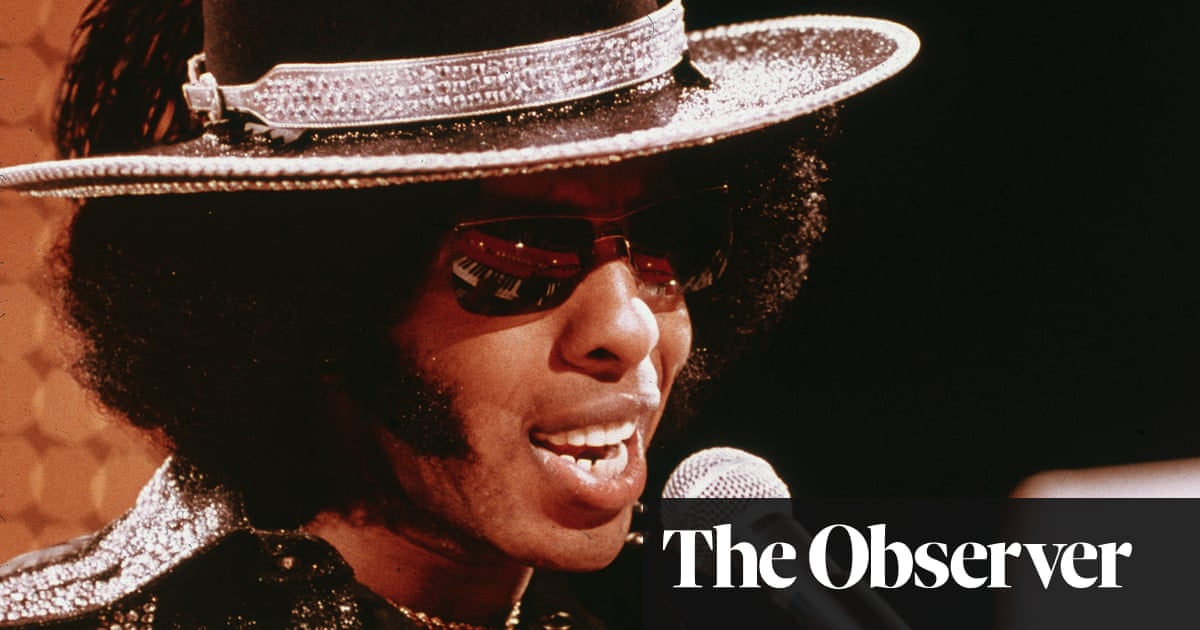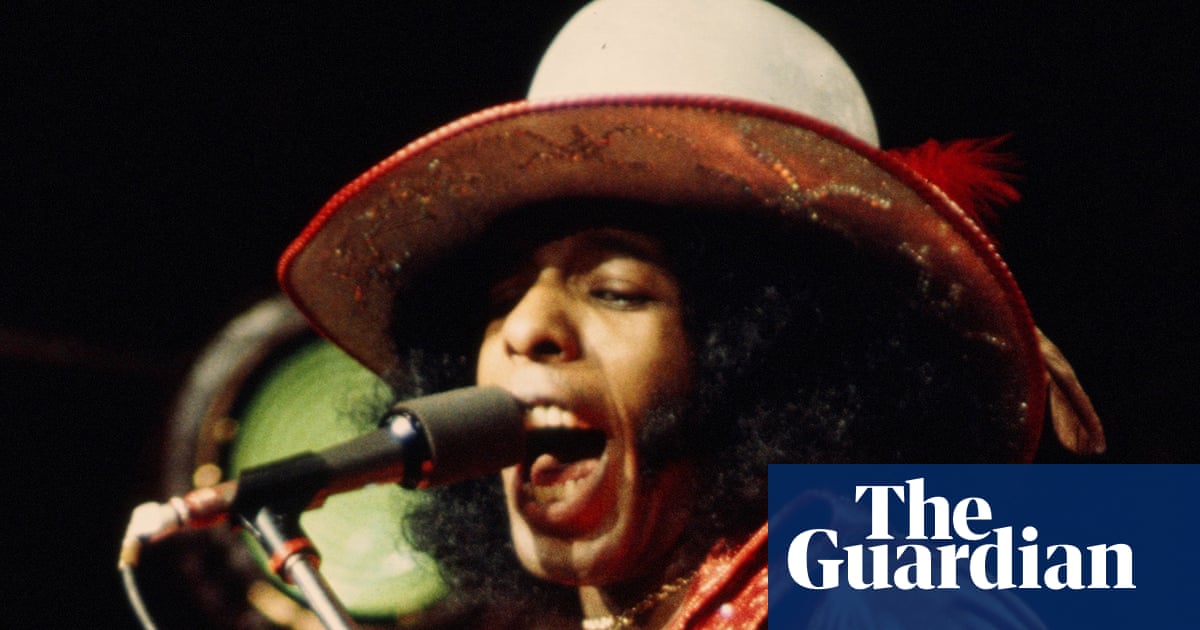
When I heard that Sly Stone was set to publish his memoir, my first reaction was one of surprise: I’d assumed that he had long since passed away. As the leader of funk-rock-soul masters Sly and the Family Stone, the singer and multi-instrumentalist born Sylvester Stewart in 1943 wrote and recorded some of the most infectious, inventive, exuberant music of the late 1960s and early 70s, including such tracks as Family Affair, Runnin’ Away, Stand! and Dance to the Music. While the band’s influence has endured, Stone himself fell so fully out of the public eye that I can’t have been alone in assuming his addictions had done for him years ago. The reality is that Stone, now 80, was forced by declining health to finally get clean during the pandemic, at which point he turned his attention to getting down in print his story of stellar success and long, narcotised decline.
Named after one of Sly and the Family Stone’s funkiest songs, Thank You (Falettinme Be Mice Elf Agin) was ghostwritten by Ben Greenman, who has also worked on a book with Stone’s friend and fellow funk titan George Clinton. The story Stone has to tell is one with few surprises, playing out pretty much as anyone with a cursory idea of his career might expect. Born in Texas and raised in Vallejo, a town 30km north of San Francisco, Sly Stone was never going to do anything else with his life other than devote it to making music. He sang at home and in church with his siblings and parents. “I felt incomplete without an instrument,” he writes. “When I went out into the world, I was surprised to see people who weren’t carrying instruments.” He studied music at college, benefiting from the guidance of an inspiring teacher, David Froehlich, who Stone would later invite to his concerts as guest of honour. While he was working out his sound with the band who would become the Family Stone, Sly gained a following as a jive-talking DJ on a San Francisco radio station, and produced some hit records, including one for Grace Slick before she found fame with Jefferson Airplane.
Fizzing with ambition and energy, the young Stone worked his band hard, honing a sound that would melt generic borders in the way that the group’s constitution – black and white, female and male – deliberately flouted pop convention. Tellingly, alongside his enthusiasm for Sam Cooke, Ray Charles and other great black musicians, Stone was fascinated by the Beatles – “for their melodies, and their lyrics and their tight harmonies” – and Bob Dylan (“He pushed his mind at you through his music”). Stone’s euphoric expressiveness was never going to stay in any one lane – he took ideas from everywhere and spun them back out in a sonic richness that defied quick categorisation. In the Family Stone’s psychedelic utopia, “music didn’t have a colour. All I could see was notes, styles and ideas.” Stone’s descriptions of playing and recording music are spirited if hardly precise: “Freddie played like a motherfucker. Rose sang like a motherfucker. Greg held the whole thing down.”
Sly and the Family Stone had their first US No 1 with Everyday People in 1969, the same year they – and Jimi Hendrix – stole the show at Woodstock. Their creative and commercial peak would last just a few years, and these fill out the first third of Stone’s memoir. By the time their acclaimed and murky album There’s a Riot Goin’ On was released in 1971 (its title was an answer to Marvin Gaye’s album from earlier that year, What’s Going On), the familiar tropes of rock-star excess and fraying 70s mindsets were already in play. We get a Bel Air mansion littered with guns, pills, trays of cocaine, rooms full of girls, and famous or notorious friends dropping by. Stone’s preferred substance was cocaine – first as powder, later as freebase or crack – together with Placidyl sedative pills to level him out. For a period he was into PCP (also known as angel dust): “It threw your perspective off, which I liked.”
A whole chapter is given to the ostentatious wedding and concert Stone threw in Madison Square Garden, when he married Kathy Silva. As the 70s wore on, the Family Stone released a few more albums to dwindling interest. They were dropped by their label, Epic, in 1977, before being signed by Warner Brothers. Meanwhile, Stone’s personal life became dark and sordid. There were tax issues that would dog him for decades, drug busts, a series of deaths and catastrophes (his infant son was savaged by Stone’s beloved dog; a young man was shot dead while trespassing on his property). By the 1980s Stone wasn’t doing much but smoking crack. In a single page he pesters a pop star into trying the drug at a party (she doesn’t like it, much to Stone’s amazement), and offers a visiting Ike Turner “the pick of the girls” for having facilitated a drug connection. There are stints in prison, stints in rehab.
While the charm, playfulness, humour and personality of Stone’s songs come through in his on-page voice (his penchant for wordplay would grate in any other context than a funkster’s memoir), he is not an especially philosophical or self-reflective character, and his insights on fame, drugs, music and women are rarely penetrating. Lovers of the man’s music will enjoy the book for the voice, the studio and touring details, the pop star anecdotes. Those not so committed may be less enthralled by a story that is largely unedifying and light on revelations.
Thank You (Falettinme Be Mice Elf Agin) by Sly Stone (with Ben Greenman) is published by White Rabbit (£25). To support the Guardian and Observer order your copy at guardianbookshop.com. Delivery charges may apply












